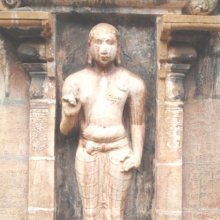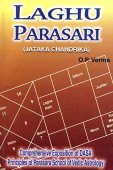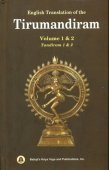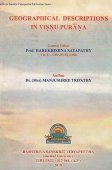Foremost: 1 definition
Introduction:
Foremost means something in Hinduism, Sanskrit. If you want to know the exact meaning, history, etymology or English translation of this term then check out the descriptions on this page. Add your comment or reference to a book if you want to contribute to this summary article.
Images (photo gallery)
In Hinduism
Yoga (school of philosophy)
Source: ORA: Amanaska (king of all yogas): A Critical Edition and Annotated Translation by Jason BirchThe Foremost (of the Yogas) is denoted by the Sanskrit term Mukhya, according to the Śivayogadīpikā by Sadāśivayogīśvara: a text dealing with Śaivism and Haṭhayoga in two hundred and eighty-nine verses.—Accordingly, while discussing the four Yogas: “Because of their ever increasing pre-eminence, [these] Yogas [of Mantra, Laya, Haṭha and Rāja] are the only four [needed]. Among them, this unique [Rājayoga], which is the best of the best Rājayogas, is the foremost [i.e., mukhya]”.

Yoga is originally considered a branch of Hindu philosophy (astika), but both ancient and modern Yoga combine the physical, mental and spiritual. Yoga teaches various physical techniques also known as āsanas (postures), used for various purposes (eg., meditation, contemplation, relaxation).
See also (Relevant definitions)
Starts with: Foremost Paramita.
Query error!
Full-text (+817): Agrima, Mukhya, Pramukha, Paurastya, Agra, Pragrasara, Prathamaka, Prathama, Agriya, Agrya, Turamundi, Puroratha, Mukhiya, Agrim, Dhusanem, Agraganya, Dhurgata, Dhura, Mauli, Anikavat.
Relevant text
Search found 348 books and stories containing Foremost; (plurals include: Foremosts). You can also click to the full overview containing English textual excerpts. Below are direct links for the most relevant articles:
Maha Prajnaparamita Sastra (by Gelongma Karma Migme Chödrön)
IV. True omniscience belongs to the Buddha < [VII. Winning omniscience and the knowledge of all the aspects]
The Ugratagṛhapati-jātaka < [I. Puṇyakriyāvastu consisting of generosity]
Story of the joy of the merchants saved from shipwreck < [Section I.1 - Abstaining from murder]
Mahabharata (English) (by Kisari Mohan Ganguli)
Section XXIII < [Anugita Parva]
Section II < [Pandava-Pravesa Parva]
Section CXVII < [Jayadratha-Vadha Parva]
Yavanajataka by Sphujidhvaja [Sanskrit/English] (by Michael D Neely)
Verse 1.88 < [Chapter 1 - The Innate Nature of the Zodiac Signs and Planets]
Verse 22.3 < [Chapter 22 - Pravrajyā Yoga]
Verse 22.4 < [Chapter 22 - Pravrajyā Yoga]
Manusmriti with the Commentary of Medhatithi (by Ganganatha Jha)
Verse 1.96 < [Section LIX - Superiority of the Brāhmaṇa]
Verse 3.184 < [Section IX - The Sanctifiers of Company]
Verse 3.192 < [Section X - Method of Invitation]
Related products




